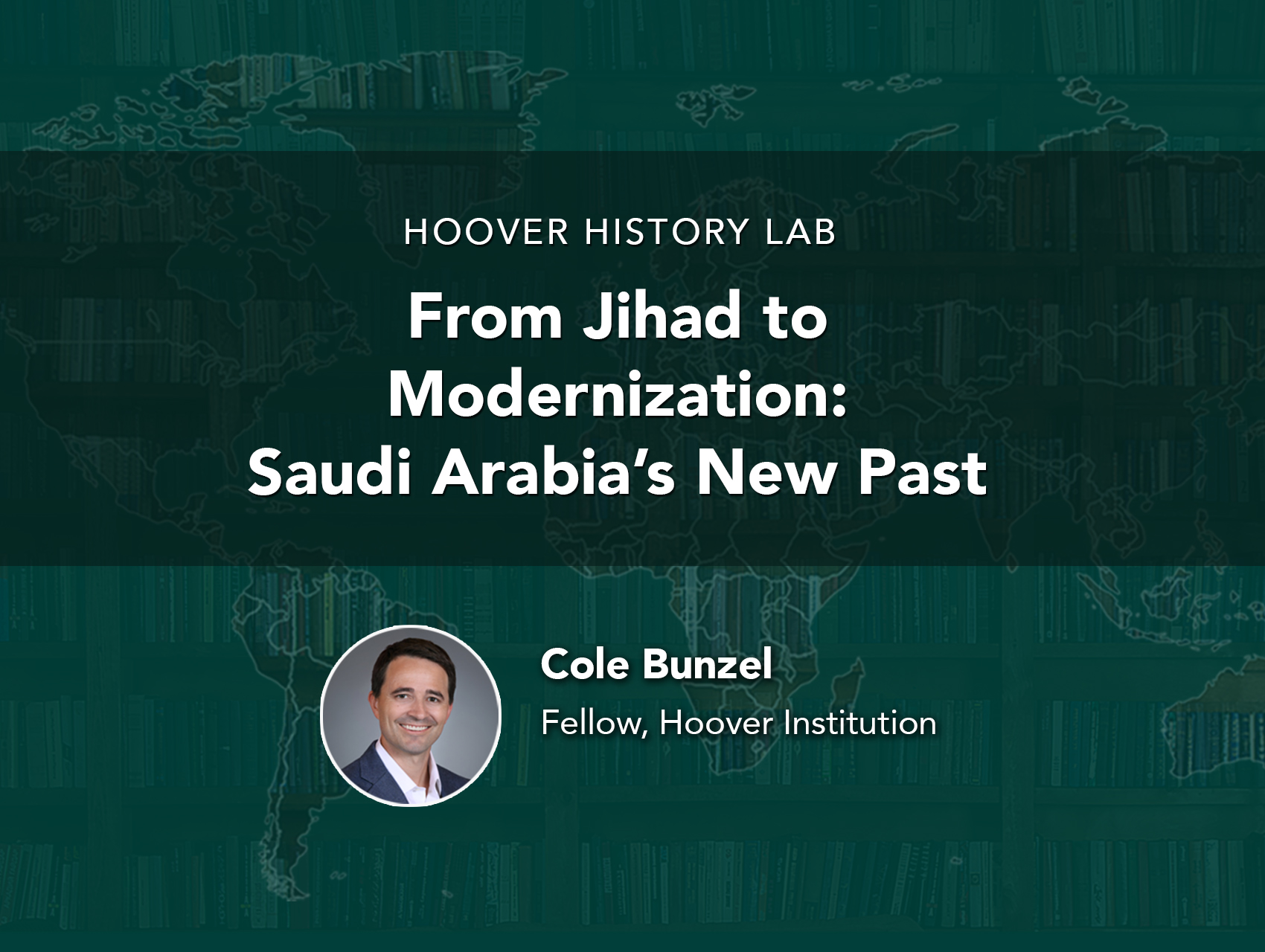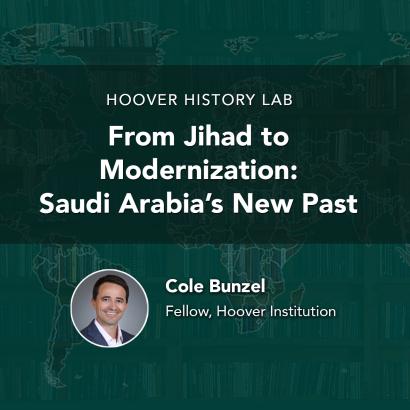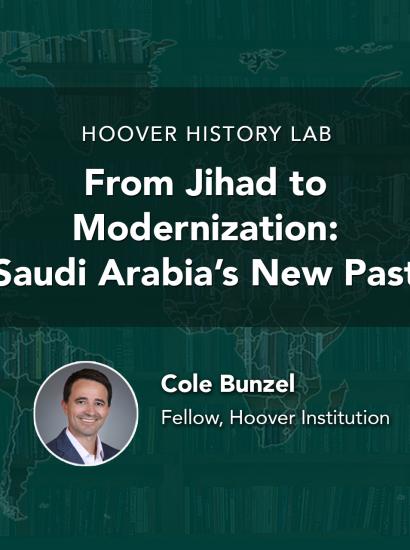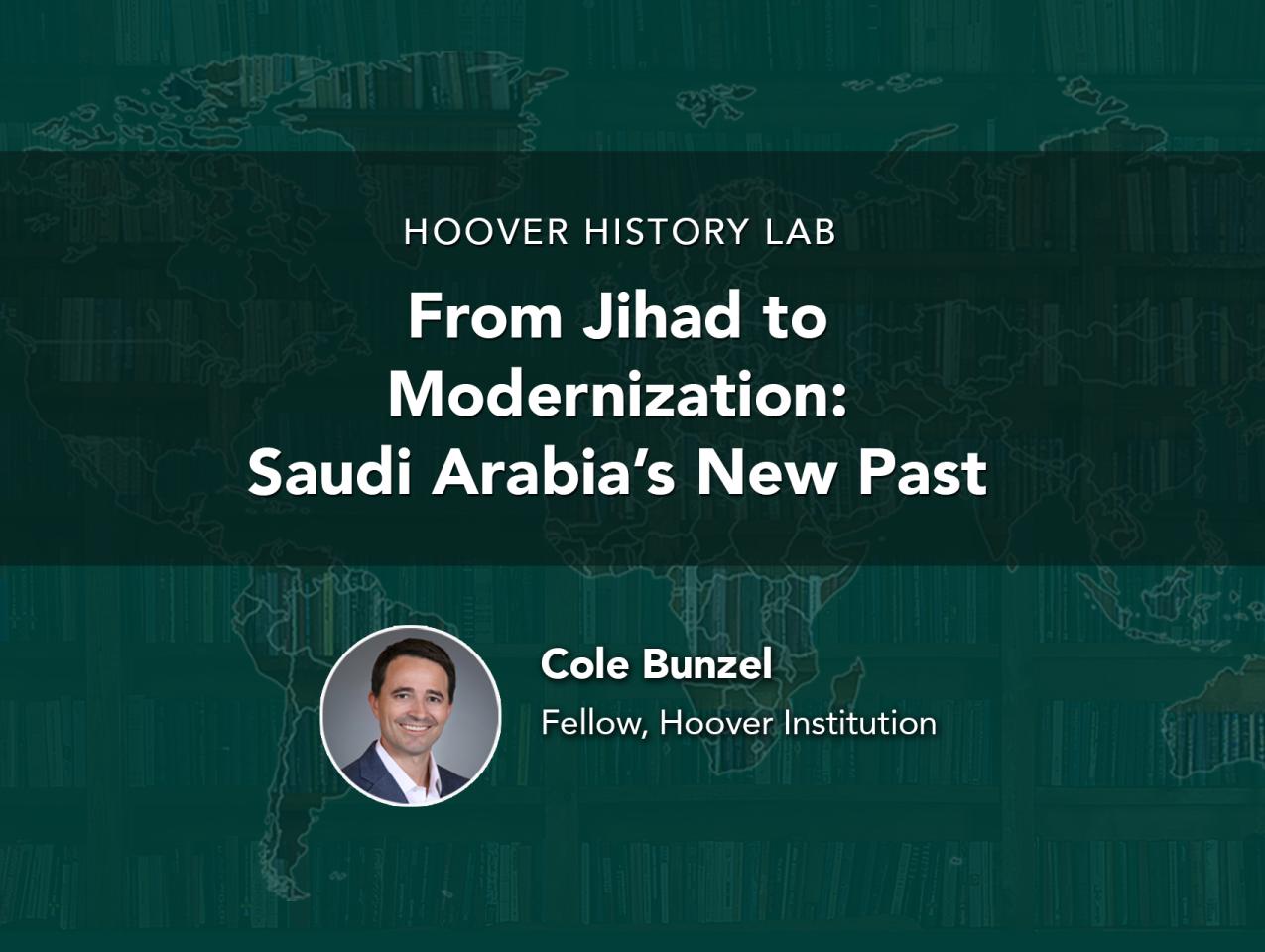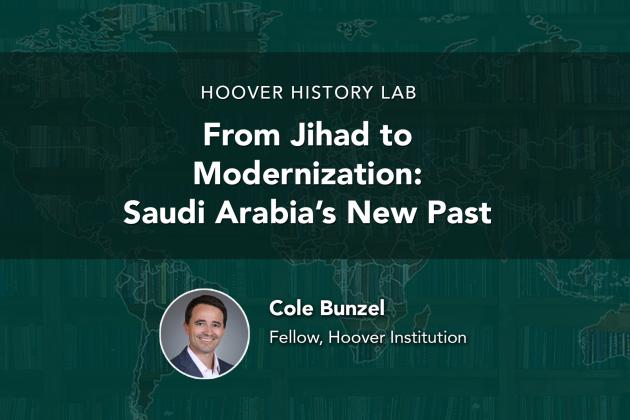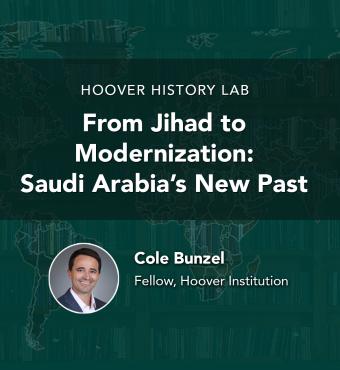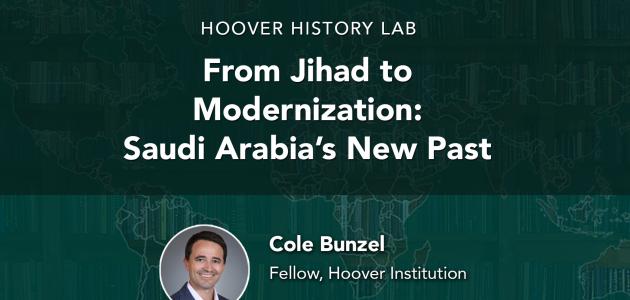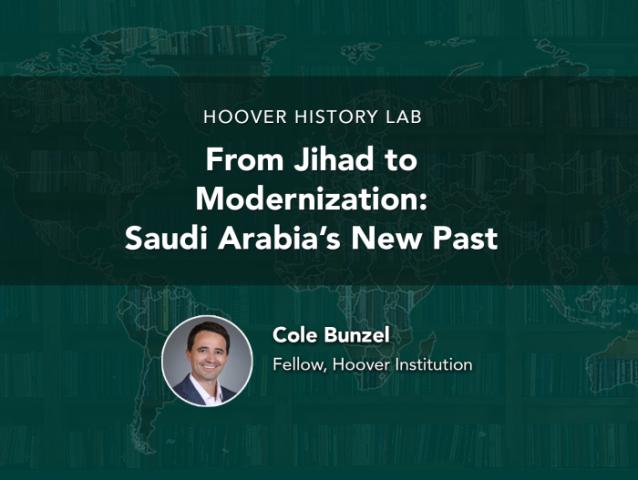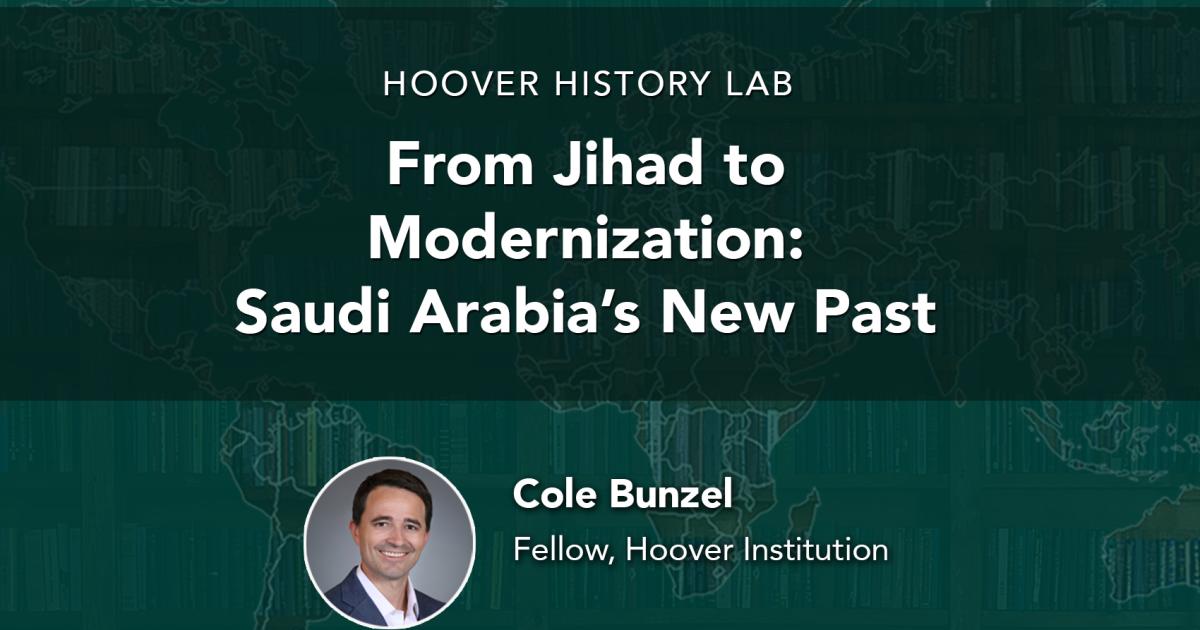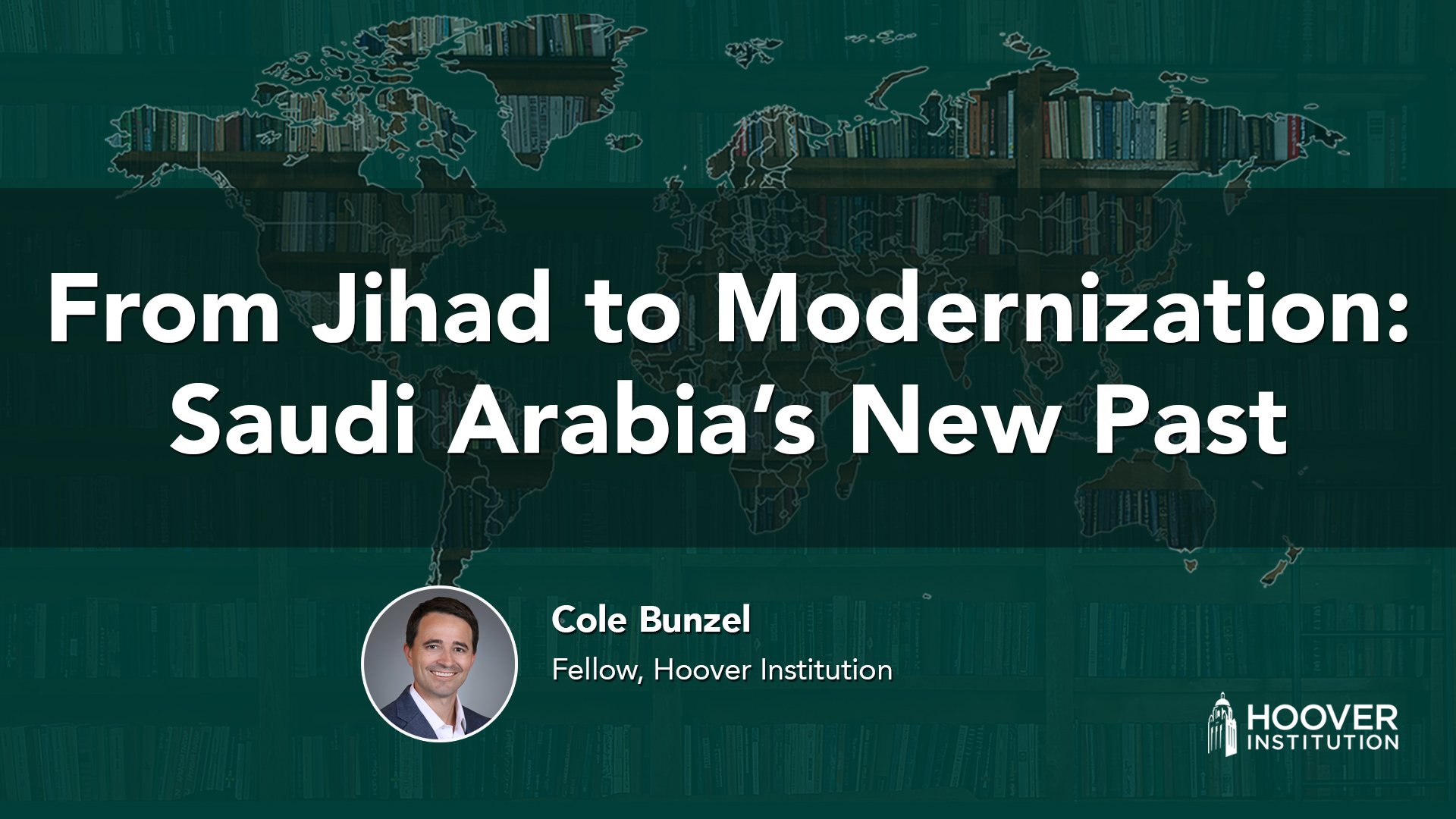- Middle East
- International Affairs
- History
- Revitalizing History
Mohammed bin Salman (MBS) has redefined Saudi Arabia’s origins through the promotion of a new holiday Founding Day, shifting the state’s founding to minimize Wahhabism’s role. MBS has eliminated the religious police’s power and embraced entertainment to align with his Vision 2030 modernization goals. This historical transformation looks to strengthen Saudi Arabia’s legitimacy as a unified, progressive nation, supporting broader U.S. interests in curbing intolerant ideologies.
>> Cole Bunzel: In recent years, Mohammed bin Salman, the 39 year old crown Prince of Saudi Arabia, has been making history as he oversees an ambitious modernization project aimed at fundamentally transforming Saudi Arabia's economy and and society. And thus far, the change has been extraordinary, particularly in the social domain where the power of the religious police has been effectively eliminated and new forms of entertainment, such as movie theaters and concerts and wrestling matches are accepted and even promoted.
Yet what is less well known is that Saudi Arabia under mbs, as the Crown Prince is known, isn't just making history, it's rewriting history as well, specifically the history of the early Saudi state, the ancestral Saudi polity founded in the 18th century, from which modern Saudi Arabia derives.
Traditionally, the early Saudi state is said to have been the product of an alliance reached in 1744 between Muhammad bin Saud, the namesake of the Saudi dynasty, and Muhammad bin Abdul Wahhab, the founder of the Islamic reform movement. Known as Wahhabism, the controversial Wahhabi movement taught that most professed Muslims were in fact unbelievers.
And it was on the basis of this exclusivist and militant doctrine that the early Saudi state conquered most of the Arabian Peninsula, waging jihad against perceived unbelievers for the purpose of eliminating what it saw as rampant polytheism. But for mbs, this history is unsuitable for the direction in which he seeks to steer the country.
And thus he has promoted a new version of history that practically writes Wahhabism out of the narrative altogether. In this new narrative, enshrined in the new national holiday of Founding Day, the early Saudi state is said to have been born not in 1744, but in 1727, the year Mohammed bin Saud came to power, allegedly with a vision for bringing unity, security and economic prosperity to the Arabian Peninsula.
With this new Founding Day narrative, MBS hopes to transform the very nature of Saudi Arabia's identity and the basis of its legitimacy away from anything to do with Wahhabism as history. This new narrative may not find a great deal of support in the primary sources from the period in question.
Yet as a political measure, it no doubt has value in advancing Saudi modernization and including in ways long sought by the United States. And here I mean specifically the reining in of the highly intolerant Wahhabi version of Islam. So in that sense, we may do well to look the other way and to heed Ernest Reynan's famous dictum that the act of forgetting, I would even say historical error, is an essential factor in the creation of a nation.
ABOUT THE SPEAKER
Cole Bunzel is a Hoover Institution Fellow, historian, and scholar of the contemporary Middle East, specializing in the history of Arabian Peninsula, Islamic theology and law, and modern Islamic radicalism. Bunzel received a B.A. and Ph.D. in Near Eastern Studies from Princeton University and an M.A. in international relations from the Johns Hopkins School of Advanced International Studies.
ABOUT THE SERIES
Policy in Brief by the Hoover History Lab analyzes contemporary global policy challenges, offering insights and providing possible solutions through a historical lens.







